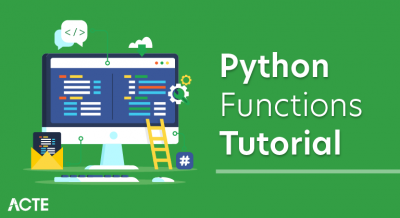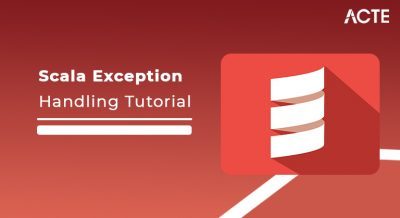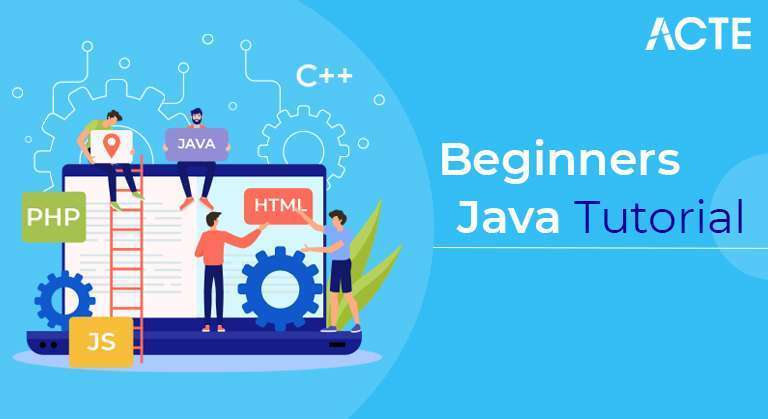
Java is a high-level programming language originally developed by Sun Microsystems and released in 1995. Java runs on a variety of platforms, such as Windows, Mac OS, and the various versions of UNIX. This tutorial gives a complete understanding of Java. This reference will take you through simple and practical approaches while learning Java Programming language. Java programming language was originally developed by Sun Microsystems which was initiated by James Gosling and released in 1995 as core component of Sun Microsystems’ Java platform (Java 1.0 [J2SE]). The latest release of the Java Standard Edition is Java SE 8. With the advancement of Java and its widespread popularity, multiple configurations were built to suit various types of platforms. For example: J2EE for Enterprise Applications, J2ME for Mobile Applications. The new J2 versions were renamed as Java SE, Java EE, and Java ME respectively. Java is guaranteed to be Write Once, Run Anywhere. Java is − Object Oriented − In Java, everything is an Object. Java can be easily extended since it is based on the Object model. Platform Independent − Unlike many other programming languages including C and C++, when Java is compiled, it is not compiled into platform specific machine, rather into platform independent byte code. This byte code is distributed over the web and interpreted by the Virtual Machine (JVM) on whichever platform it is being run on. Simple − Java is designed to be easy to learn. If you understand the basic concept of OOP Java, it would be easy to master. Secure − With Java’s secure feature it enables to develop virus-free, tamper-free systems. Authentication techniques are based on public-key encryption. Architecture-neutral − Java compiler generates an architecture-neutral object file format, which makes the compiled code executable on many processors, with the presence of Java runtime system. Portable − Being architecture-neutral and having no implementation dependent aspects of the specification makes Java portable. Compiler in Java is written in ANSI C with a clean portability boundary, which is a POSIX subset. Robust − Java makes an effort to eliminate error prone situations by emphasizing mainly on compile time error checking and runtime checking. Multithreaded − With Java’s multithreaded feature it is possible to write programs that can perform many tasks simultaneously. This design feature allows the developers to construct interactive applications that can run smoothly. Interpreted − Java byte code is translated on the fly to native machine instructions and is not stored anywhere. The development process is more rapid and analytical since the linking is an incremental and light-weight process. High Performance − With the use of Just-In-Time compilers, Java enables high performance. Distributed − Java is designed for the distributed environment of the internet. Dynamic − Java is considered to be more dynamic than C or C++ since it is designed to adapt to an evolving environment. Java programs can carry extensive amount of run-time information that can be used to verify and resolve accesses to objects on run-time.
Why to Learn java Programming?
Java is a MUST for students and working professionals to become a great Software Engineer specially when they are working in Software Development Domain. I will list down some of the key advantages of learning Java Programming:
- Object Oriented − In Java, everything is an Object. Java can be easily extended since it is based on the Object model.
- Platform Independent − Unlike many other programming languages including C and C++, when Java is compiled, it is not compiled into platform specific machine, rather into platform independent byte code. This byte code is distributed over the web and interpreted by the Virtual Machine (JVM) on whichever platform it is being run on.
- Simple − Java is designed to be easy to learn. If you understand the basic concept of OOP Java, it would be easy to master.
- Secure − With Java’s secure feature it enables to develop virus-free, tamper-free systems. Authentication techniques are based on public-key encryption.
- Architecture-neutral − Java compiler generates an architecture-neutral object file format, which makes the compiled code executable on many processors, with the presence of Java runtime system.
- Portable − Being architecture-neutral and having no implementation dependent aspects of the specification makes Java portable. Compiler in Java is written in ANSI C with a clean portability boundary, which is a POSIX subset.
- Robust − Java makes an effort to eliminate error prone situations by emphasizing mainly on compile time error checking and runtime checking.
Application
According to Sun, 3 billion devices run Java. There are many devices where Java is currently used. Some of them are as follows:
- Desktop Applications such as acrobat reader, media player, antivirus, etc.
- Web Applications such as irctc.co.in, javatpoint.com, etc.
- Enterprise Applications such as banking applications.
- Mobile
- Embedded System
- Smart Card
- Robotics
- Games, etc.
Types of Java Applications There are mainly 4 types of applications that can be created using Java programming: 1) Standalone Application Standalone applications are also known as desktop applications or window-based applications. These are traditional software that we need to install on every machine. Examples of standalone application are Media player, antivirus, etc. AWT and Swing are used in Java for creating standalone applications. 2) Web Application An application that runs on the server side and creates a dynamic page is called a web application. Currently, Servlet, JSP, Struts, Spring, Hibernate, JSF, etc. technologies are used for creating web applications in Java. 3) Enterprise Application An application that is distributed in nature, such as banking applications, etc. is called enterprise application. It has advantages of the high-level security, load balancing, and clustering. In Java, EJB is used for creating enterprise applications. 4) Mobile Application An application which is created for mobile devices is called a mobile application. Currently, Android and Java ME are used for creating mobile applications.
Java Platforms / Editions There are 4 platforms or editions of Java: 1) Java SE (Java Standard Edition) It is a Java programming platform. It includes Java programming APIs such as java.lang, java.io, java.net, java.util, java.sql, java.math etc. It includes core topics like OOPs, String, Regex, Exception, Inner classes, Multithreading, I/O Stream, Networking, AWT, Swing, Reflection, Collection, etc. 2) Java EE (Java Enterprise Edition) It is an enterprise platform which is mainly used to develop web and enterprise applications. It is built on the top of the Java SE platform. It includes topics like Servlet, JSP, Web Services, EJB, JPA, etc. 3) Java ME (Java Micro Edition) It is a micro platform which is mainly used to develop mobile applications. 4) JavaFX It is used to develop rich internet applications. It uses a light-weight user interface API.
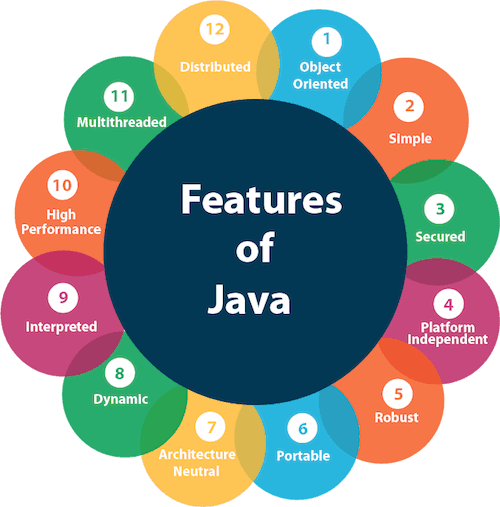
Features of Java The primary objective of Java programming language creation was to make it portable, simple and secure programming language. Apart from this, there are also some excellent features which play an important role in the popularity of this language. The features of Java are also known as java buzzwords. A list of most important features of Java language is given below.
- Simple
- Object-Oriented
- Portable
- Platform independent
- Secured
- Robust
- Architecture neutral
- Interpreted
- High Performance
- Multithreaded
- Distributed
- Dynamic
Simple
Java is very easy to learn, and its syntax is simple, clean and easy to understand. According to Sun, Java language is a simple programming language because:
Java syntax is based on C++ (so easier for programmers to learn it after C++).
Java has removed many complicated and rarely-used features, for example, explicit pointers, operator overloading, etc.
There is no need to remove unreferenced objects because there is an Automatic Garbage Collection in Java.
Object-oriented
Java is an object-oriented programming language. Everything in Java is an object. Object-oriented means we organize our software as a combination of different types of objects that incorporates both data and behavior.
Object-oriented programming (OOPs) is a methodology that simplifies software development and maintenance by providing some rules.
Basic concepts of OOPs are:
- Object
- Class
- Inheritance
- Polymorphism
- Abstraction
- Encapsulation
Platform Independent
Java is platform independent because it is different from other languages like C, C++, etc. which are compiled into platform specific machines while Java is a write once, run anywhere language. A platform is the hardware or software environment in which a program runs. There are two types of platforms software-based and hardware-based. Java provides a software-based platform. The Java platform differs from most other platforms in the sense that it is a software-based platform that runs on the top of other hardware-based platforms. It has two components:
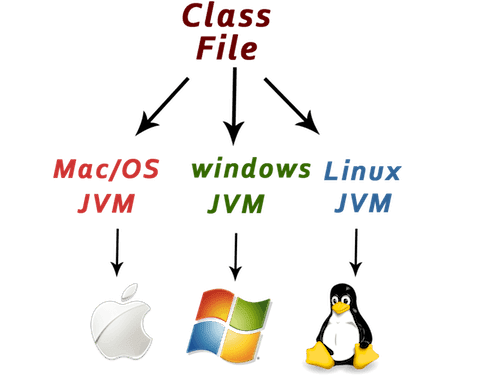
- Runtime Environment
- API(Application Programming Interface)
Java code can be run on multiple platforms, for example, Windows, Linux, Sun Solaris, Mac/OS, etc. Java code is compiled by the compiler and converted into bytecode. This bytecode is a platform-independent code because it can be run on multiple platforms, i.e., Write Once and Run Anywhere(WORA).
Secured
Java is best known for its security. With Java, we can develop virus-free systems. Java is secured because:
- No explicit pointer
- Java Programs run inside a virtual machine sandbox
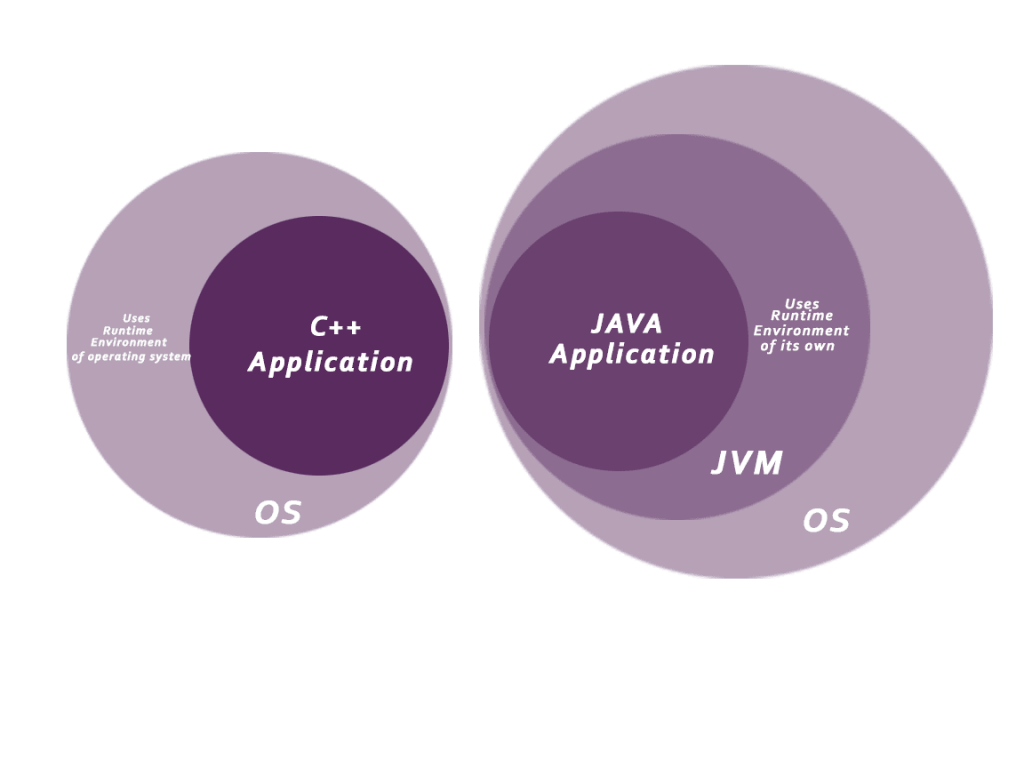
- Classloader: Classloader in Java is a part of the Java Runtime Environment(JRE) which is used to load Java classes into the Java Virtual Machine dynamically. It adds security by separating the package for the classes of the local file system from those that are imported from network sources.
- Bytecode Verifier: It checks the code fragments for illegal code that can violate access right to objects.
- Security Manager: It determines what resources a class can access such as reading and writing to the local disk.
Java language provides these securities by default. Some security can also be provided by an application developer explicitly through SSL, JAAS, Cryptography, etc.
Robust
Robust simply means strong. Java is robust because:
- It uses strong memory management.
- There is a lack of pointers that avoids security problems.
- There is automatic garbage collection in java which runs on the Java Virtual Machine to get rid of objects which are not being used by a Java application anymore.
- There are exception handling and the type checking mechanism in Java. All these points make Java robust.
Architecture-neutral Java is architecture neutral because there are no implementation dependent features, for example, the size of primitive types is fixed. In C programming, int data type occupies 2 bytes of memory for 32-bit architecture and 4 bytes of memory for 64-bit architecture. However, it occupies 4 bytes of memory for both 32 and 64-bit architectures in Java.
Portable Java is portable because it facilitates you to carry the Java bytecode to any platform. It doesn’t require any implementation.
High-performance Java is faster than other traditional interpreted programming languages because Java bytecode is “close” to native code. It is still a little bit slower than a compiled language (e.g., C++). Java is an interpreted language that is why it is slower than compiled languages, e.g., C, C++, etc.
Distributed Java is distributed because it facilitates users to create distributed applications in Java. RMI and EJB are used for creating distributed applications. This feature of Java makes us able to access files by calling the methods from any machine on the internet.
Multi-threaded A thread is like a separate program, executing concurrently. We can write Java programs that deal with many tasks at once by defining multiple threads. The main advantage of multi-threading is that it doesn’t occupy memory for each thread. It shares a common memory area. Threads are important for multi-media, Web applications, etc. Dynamic Java is a dynamic language. It supports dynamic loading of classes. It means classes are loaded on demand. It also supports functions from its native languages, i.e., C and C++. Java supports dynamic compilation and automatic memory management (garbage collection).
Benefits
With so many new programming languages coming to the surface every now and then, it is quite tricky for a candidate to decide, which will be the best to learn. Every language has been introduced for a purpose and has some benefits. Though each language gives the opportunity to start a flourishing career, Java is often given preference. If you are also in a dilemma of selecting programming language, you can take a look at some of the benefits of learning Java programming.
- Get rich information-: Even though there is no competition between the programming languages, still Java is considered to be the best of the rest for its richness of information. As Java has been in existence for years, you can expect an easy answer of almost all queries that come to your mind. Therefore, you can solve all your problems at ease and develop your skills.
- Learn at ease-: Many of you may consider that learning Java will be a tricky task as it is better than the other languages. However, the real fact is not so. There are some initial hurdles but the language mostly uses simple English instead of multiple brackets or generics. Once a programmer learns to install JDK and set up PATH in the right way, it will be fun to learn Java.
- Excellent toolset- It is often said that the toolset of a language plays an important role in determining its success. Java enjoys an upper hand in this case, as the program comes will complete support for open source systems. Thus, users can find tools for almost everything he needs. There are several open source libraries to offer information on any topic related to Java programming. Also there are several communities to guide programmers in the right way.
- Learn from your mistakes-: There are very few languages that teach you from your own mistakes and allow you to strengthen your base. Java has some incredible IDEs that will update you of your errors immediately. Not just that, it will also suggest you reformat the codes and the reason for doing so. Therefore, you will get a clear understanding of coding right from the very basic stage and you will hardly make any mistake, when you start your career as a professional.
- Present almost everywhere-: Being one of the oldest languages, Java is present in almost every application that you can find operating. Java can be used successfully, irrespective of the size or type of the language. This language is used in almost every Android app for its flawless performance.
- Java is free- You must have come across the common saying that the best things come for free! Yes, Java, which is often touted to be the best programming language is available free of cost right from the beginning. Therefore, be it the learning stage or the professional stage, you can set up an application using Java without paying any money at all. You just need to learn the procedure in the right way and start.
- Better scope for professionals-: As you are intending to learn a programming language for starting a professional career, Java will be a better choice for you. It is used in the maximum number of applications and researches are in progress to increase its scope further. Therefore, anyone, who learns this language, can expect a better career in the industry compared to any other language programmer. The free of cost availability of this language reduces the expenses of the companies, which is why, most of them prefer to appoint professionals, who are experts of Java.
Conclusion
This module covered a lot of territory relating to the fundamentals of the Java programming language.
You began the module by learning about the structure of Java program code. You then learned about the different data types used in Java, including arrays and strings.
From there you found out how Java evaluates expressions. Finally, you wrapped up the module by learning about the different operators used to carry out operations such as assignment, addition, and subtraction.


